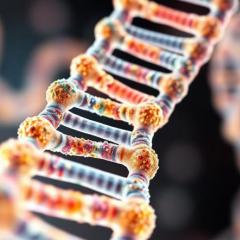Some breast cancer cells may survive treatments such as chemotherapy by boosting production of a protein which usually works to keep the body healthy, a University of Queensland study has found.
UQ Diamantina Institute Senior Research Fellow Dr Pascal Duijf said the tactic gave cancer cells the ability to endure stressful conditions, such as cancer treatment.
“The cancer cells increase production of a protein called EEF1A1 when they encounter stress,” he said.
“This protein protects cells, including healthy cells, under tough conditions – so when a breast cancer cell increases this protein’s level, it may be able to survive cancer treatment.”
Dr Duijf said the findings had important implications for both diagnosis and treatment of breast cancer.
“Current breast cancer diagnosis practices often rely on examining genetic material within cells,” he said.
“However, our study emphasises that monitoring protein levels may also be key to diagnosing the disease.”
“Also, if we could target and reduce EEF1A1 in tumour cells, we could develop more effective treatments and increase the survival rate for breast cancer patients.”
Dr Duijf said breast cancer cells typically had less EEF1A1 genetic material than normal cells.
“This usually means that protein levels are also lower, but we were surprised to find that the opposite happened in breast cancer cells,” he said.
“The cells play a trick on us – instead of the protein level remaining low, stresses such as cancer treatment actually increase the protein level, helping the tumour cells to survive.”
The study is published in Scientific Reports (DOI 10.1038/s41598-018-32272-x), and was supported by the National Breast Cancer Foundation.
Media: Faculty of Medicine Communications, med.media@uq.edu.au, +61 7 3365 5133.



